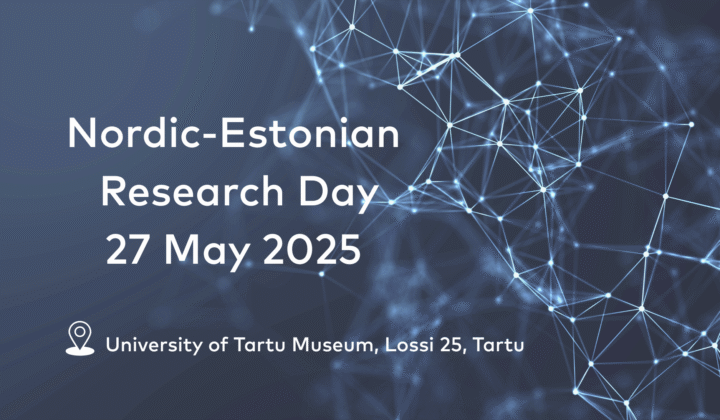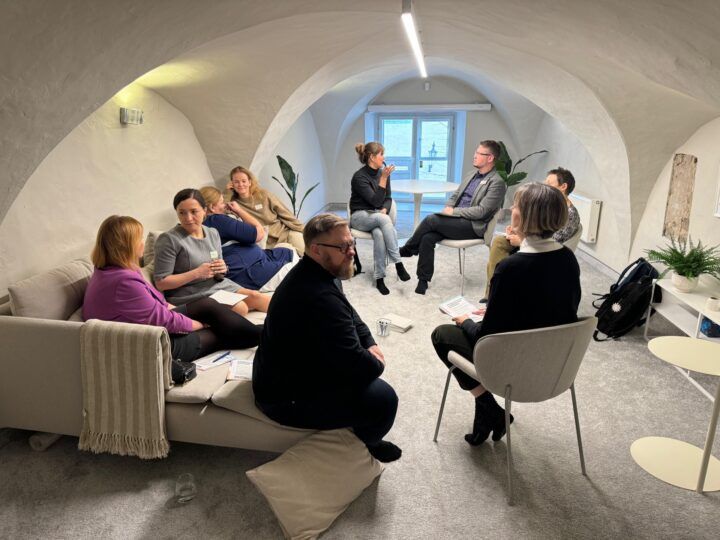Ethical hacking and playful cyber studies: school subjects of the future starting from a young age?
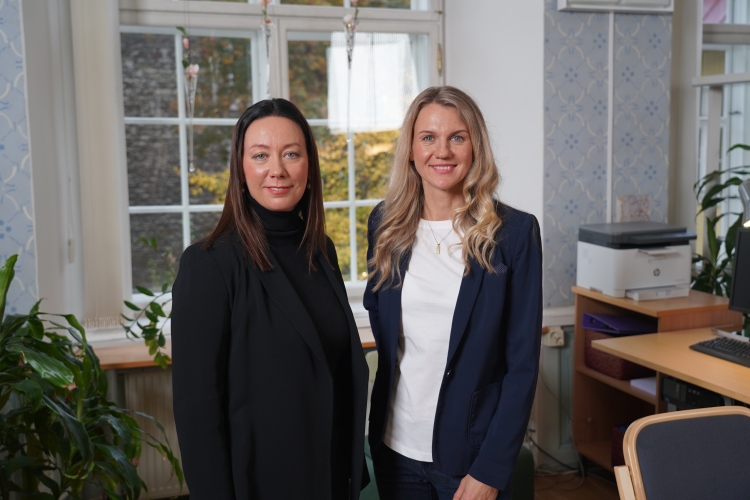
Marki Tihhonova-Kreek and Grete Kodi are two positive and proactive women who are dedicated to the cyber education of young people. As the CEO of CTF Tech, Marki has been organising the ethical hacking competition Cyber Battle of Estonia for three years now. Aimed at youngsters, the project was joined last year by Grete, who is a digital consultant with the Estonian office of the Nordic Council of Ministers (NCM). This year, on 29 October, the sports hall of the University of Tartu will also host the Cyber Battle of Nordic-Baltics and, for education specialists from the region, the Cybercation forum.
Marki, where did the idea come from to launch an ethical hacking competition for youngsters?
Marki: The digitalised world we’re living in means invisible threats dog our every footstep. The world’s becoming a more complicated place all the time, so in order for us to be able to get some enjoyment out of living in it, we need to be able to protect ourselves. That’s why we and the CTF Tech team decided to focus on the next generation, teaching them how to defend themselves and their friends and family first and foremost, then their country. To that end we came up with a programme of playful cyber studies for them which has led, among other things, to the Cyber Battle of Estonia.
As part of the competition they learn about serious cyber issues in a fun way. Cyber attacks are as much of a threat as they’ve always been – that’s just the reality of things these days. And that’s why we start the kids early, at around 14 or 15.
We quickly realised you can’t run an educational project without partners from the education sector itself. That’s why we started working with the Gifted and Talented Development Centre at the University of Tartu, who even award the participants in the Estonian comp credit points for taking part. We’ve been targeting foreign universities as well – last year we trialled a comp involving a couple of teams from outside Estonia and talked with their teachers.
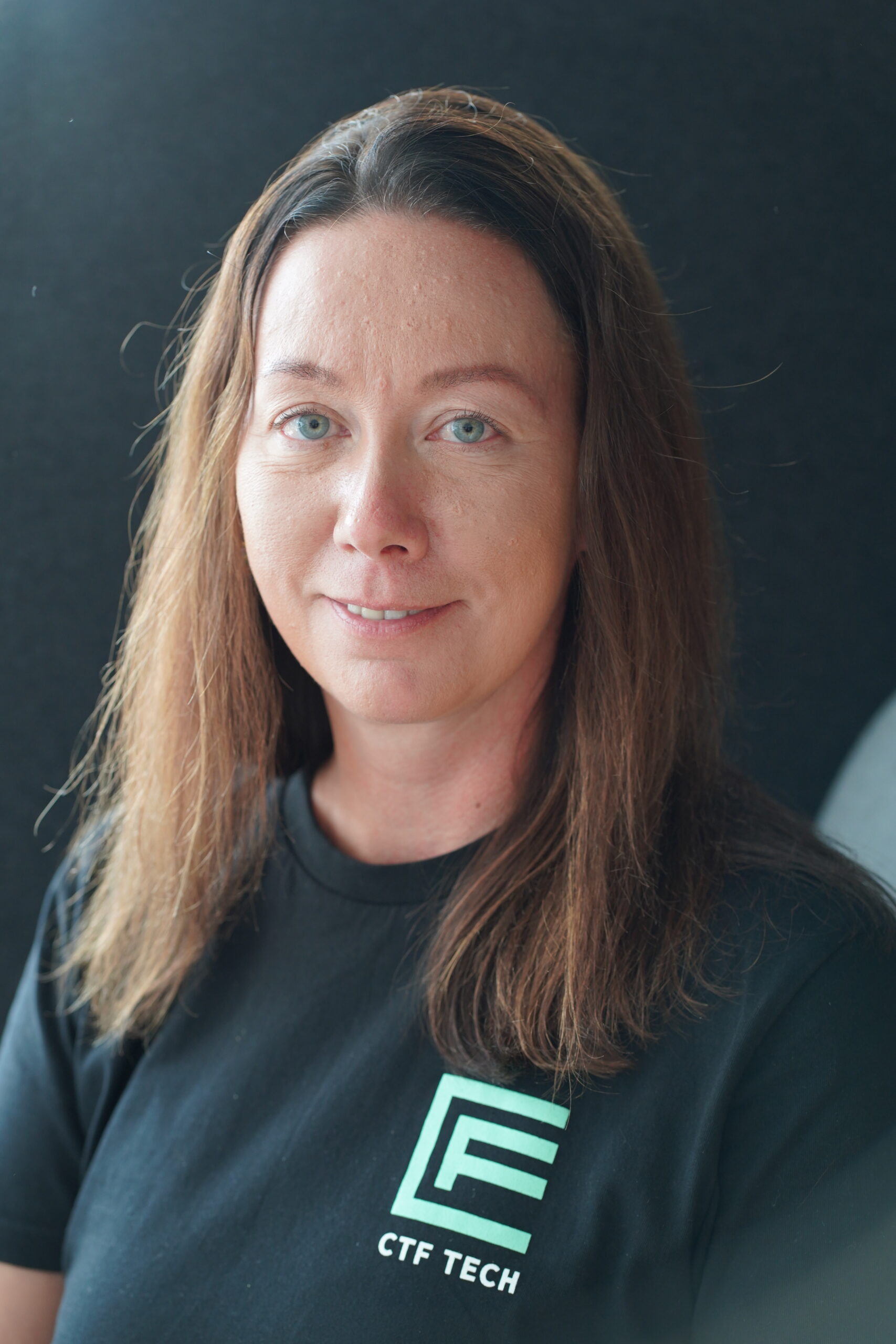
Marki Tihhonova-Kreek
Grete, how did you become involved in all this?
Grete: Marki got in touch with me and told me about the Cyber Battle project. This was just after meetings started being held with the ministers responsible for digital development in the Nordic countries and Baltic States, and after the aim was adopted for them to become the world’s most integrated region by 2030. What Marki told me really excited me, because security’s the basis of any shared system – never more so than with cross-border solutions. There’s no point creating anything if it hasn’t got a strong safety net.
Marki asked whether the Nordic countries would be interested in contributing to the project in some way, and to me partnering up like that seemed entirely logical and of the moment. We got on board straight away, and in last year’s comp there were three Nordic teams: one from Iceland and two from Finland.
This year we decided to go even bigger. When Marki told me about her partners at the University of Tartu, I came up with the idea of establishing a Nordic-Baltic education sector network that would support cyber education for youngsters. Developing their cyber skills is really important, especially since there are more jobs in the field than there are people to fill them – which has been an issue for some time already. Plus there’s the pandemic, which pushed digital development forward by a decade in the space of just two years.
And the geopolitical situation makes fostering cyber skills vital in this part of the world, especially since international borders mean nothing when it comes to cybersecurity. I’m really pleased we’ve got a good partnership going between the public and private sectors, since the former’s able to offer direct support for the bottlenecks that pop up in the latter.
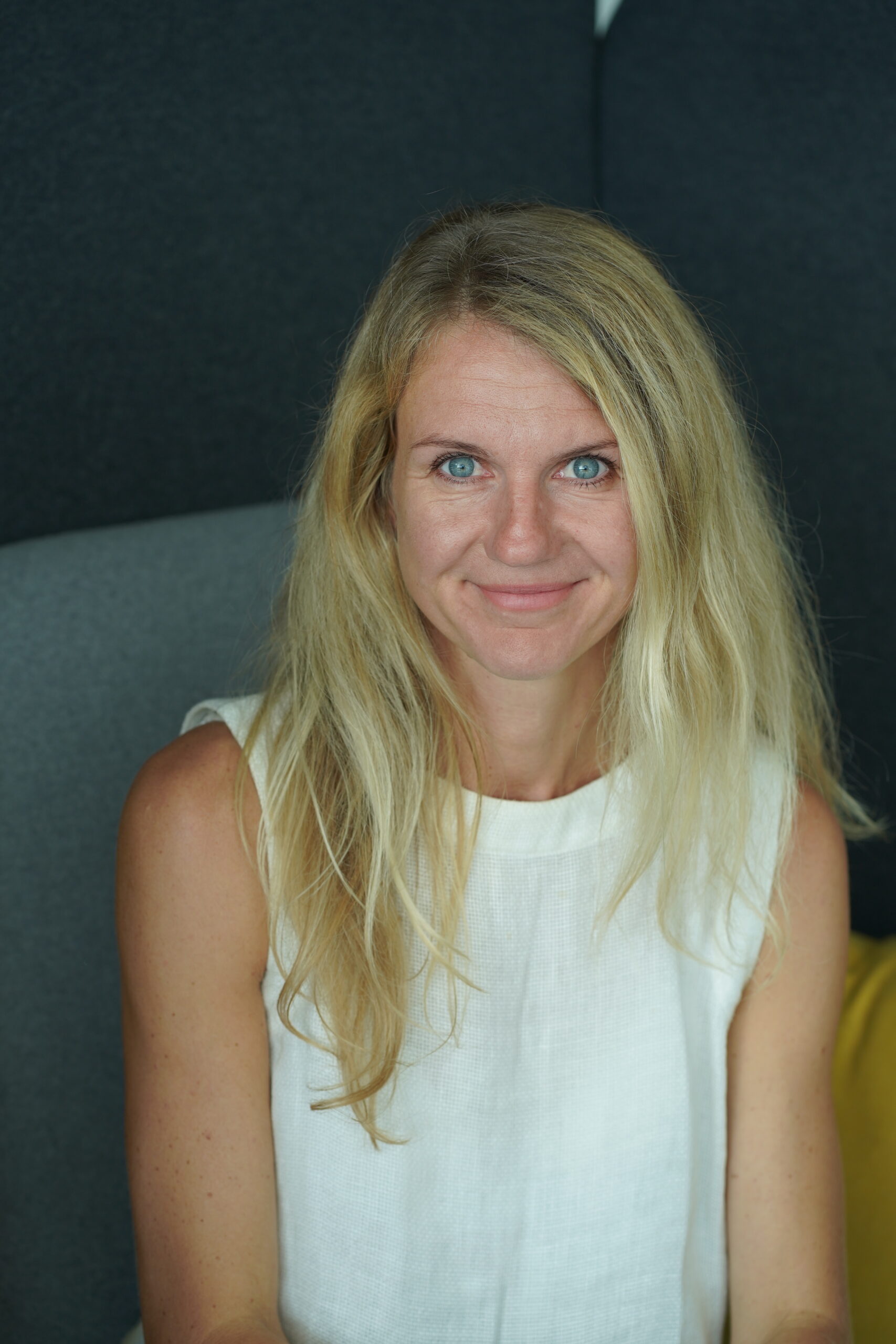
Grete Kodi
Marki: First of all we started working with the kids: teaching them in a fun way, organising the Cyber Battle and such. But if we want to promote playful cyber education more broadly, not just as part of a single competition, then we also have to work with those who teach kids and shape the education sector. That’s when Grete had the idea that since we were already planning to invite Nordic and Baltic teams to take part, the logical next step would be to get the education sector involved and offer them the chance to network and exchange thoughts on cybersecurity. Ideally that would lead, over time, to our region becoming the one with the best cyber capabilities in the world. That’s what gave us the idea of putting on a cyber education forum for people working in the education field in the Nordic countries and Baltic States. And that became Cybercation.
Presumably the participants from the Nordic countries are coming to Estonia to find out what we know and what our experience has been. So what incentive is there for Estonian teachers and education sector workers to take part?
Grete: Sharing knowledge and experience is a two-way thing. All of the Nordic countries are pretty active when it comes to cybersecurity, but Estonia just has a great reputation in that regard, and that helps us, in this context at least, to boost international cooperation.
One of the aims of Cybercation is for everyone to share information and success stories – how they teach cybersecurity, how they’ve gotten certain subjects involved in their national programmes, what their specific aims are in the field.
Our goal is to bring experts together and to enable information to be exchanged in a really practical way. Sure, we’re unlikely to achieve everything we’re setting out to in one go, but we’ll be steadily building up the network so that Cybercation becomes the annual event that brings these people together. We want to establish a cooperation network in our field, a community really, to lead the development of cyber education in the Nordic-Baltic region.
Marki: I’m with Grete – we do have a lot to learn from one another. It’s not like things are 100% perfect in Estonia, despite the image we enjoy around the globe. Youngsters graduating from secondary school and university these days have a decent working knowledge of cyber threats, but they don’t necessarily know how to deal with them in real life. We need to be fostering practical cyber skills. I’m sure we can learn a thing or two from the Nordic countries about systematisation and grasping the bigger picture, because even if they haven’t come all that far with certain things in practice, they’re still very strong in those areas.
Grete: In the Nordic countries and in Estonia we need to be looking at our attitude to cyber studies and digital literacy. Are these things we should start teaching our kids when they’re 13, 14, 15, or should we be starting earlier? And are they actually properly integrated into the education system and achieving the goals they’re meant to be?
So who will be speaking at Cybercation?
Grete: Our aim is to organise a forum that’s entirely practical and proves useful to education workers from high schools, universities and IT clubs, as well as to youth workers. There’ll be two presentations about the cyber studies situation in the region and the direction they’re heading in, one by a speaker from Norway and the other by a speaker from Estonia. There’ll be people from both the Nordic countries and Baltic States on the panel, and they’ll be giving practical examples of what’s been done, what still needs to be done and what the problems and solutions are.
Marki: Last year’s Cyber Battle final was even attended by President Karis, who’s a big supporter of practical cyber education. We hope we’ll see him at this year’s final as well, and at Cybercation.
Grete: The ministers responsible for all things digital in the Nordic countries and Baltic States met in Oslo on 6 September, where the Cyber Battle project was showcased as a success story, since cybersecurity’s the main thing the ministers deal with. That was a really big thing for us, because if we actually want to change things we can’t just deal with kids, but have to get our message across to decision-makers as well. The people with the right skills don’t just pop up out of nowhere – you have to lay the groundwork for it, you have to have a plan of action, and everyone needs to have the same understanding of the issue.
Marki: The project is more likely to have a lasting impact if we get more than just young people involved: teachers, education workers, youth work specialists, policy-shapers. That way the issue will get more coverage, and who knows, maybe working together we’ll be able to fine-tune education policy or introduce new elective subjects to school programmes.
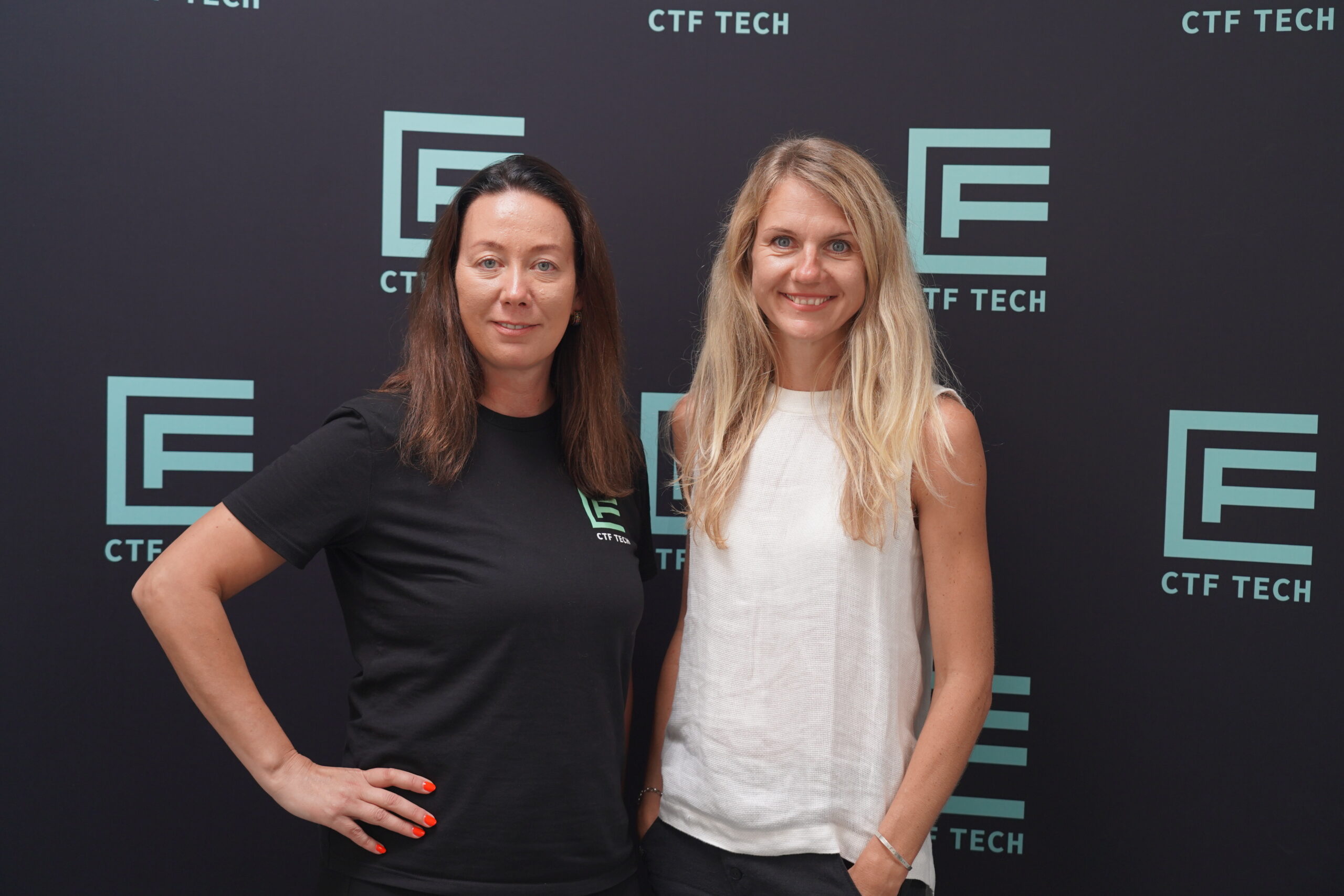
What are your expectations of Cyber Battle and Cybercation? What changes are you hoping they’ll bring about?
Grete: Firstly that a conscious effort will be made to foster cyber skills and to weave it into the education system. I also hope Cybercation is a catalyst for closer international cooperation between education specialists – that they start putting their heads together about challenges and how to overcome them.
Needless to say my dream in regard to the project is for the Nordics and Baltics to become the number-one region in the world in terms of having the most skilled and knowledgeable people to fight cyber threats – that we have the ethical hacking skills we need and that, if we have to, we’re capable of defending our region by using them. Cyber knowledge is becoming just as important as elementary literacy. They can’t be treated as separate things anymore. How to go about things online, how to construct digital systems and come up with solutions aren’t things only a handful of specialists should know how to do, but should be an ordinary part of life that everyone’s aware of.
Marki: I hope that all the kids who take part in the competition, from Estonia and the other Baltic States and Nordic countries, keep in touch and share their experiences. A lot of those who took part last year, for example, are still in touch with one another via Discord. They’ve formed this little community where they share information and keep learning new things about it.
Thanks to getting the Nordics and Baltics on board, that community’s likely to get a lot bigger, and I hope the cooperation and communication it leads to really take off. Teachers could be doing the same. Not as actively as the kids, perhaps, but I’m sure some of them will stay in touch, making it easier to organise Cybercation with each passing year.
I want to get to a point where practical cyber studies are an elective subject, or part of one, in as many schools as possible. In Estonia that’s already achievable to some extent, because the ‘Cyber Learning Programme for Young People and Youth Workers’ financed by Norway, Iceland and Liechtenstein has paved the way for it to reach up to 60 local governments within two years. If we could expand that to all of the Nordic countries and Baltic States, that would be amazing.
After all, our goal is for our region as a whole to be much stronger in the digital and cybersecurity fields in five years’ time and for us to know all the people working in the field of cyber education.
Grete: Exactly. It’s really important that a community develops. If these kids from Iceland and Estonia meet again at some point down the line, then hopefully they’ll have the same values and understanding. Establishing a community they’re all part of is one of the biggest aims of the project.
Registration for Cybercation is open until 10 October, but registration for Cyber Battle of Estonia has already closed. So why should Estonian teachers go along and watch it, and take their students with them?
Marki: They’ll see how practical cyber studies work in reality. I imagine education workers have a whole heap of new tech resources and solutions at their fingertips since the pandemic, and that they’re probably worn out from trying to keep up with all these innovations. But following the competition will show them that it’s not that complicated. Practical cyber studies are designed for everyone, not just whiz kids who win all the trophies in competitions. It’s a normal, straightforward part of real life, not rocket science.
Grete: Before I took part last year I had a certain picture in my head of what the competition would be like. But being there, I saw that cyber skills and security are woven into our everyday lives, so much so that they’re a natural and inseparable part of it these days.
Marki: There’s a big entertainment area at the competition as well where you can try solving cyber riddles and put your cyber skills to the test in real-life situations. Cyber-aware companies provide games for people to play, too. It’s worth coming just for the fun and excitement of it. Why not turn it into an excursion for your class and kill two birds with one stone?
The Cybercation education forum will be held from 12:00-16:30 on 29 October in the sports hall of the University of Tartu (working language: English). The forum is designed to bring together teachers, education specialists and educational institutions whose mission is to support the teaching and learning of ICT in the Nordic countries and Baltic States. Through it the organisers wish to promote cyber education to a wider audience, to provide it with a growth platform, to establish long-lasting partnerships and to foster international contact and communication between students, teachers and educational institutions.
For information and registration (which is open until 10 October) see https://www.norden.ee/en/news/9812-cybercation-nordic-baltic-educators-forum.
Cyber Battle of Estonia 2022 and Cyber Battle of Nordic-Baltics 2022 will be held in the same venue on the same day. These ethical hacking competitions are the biggest events of their kind for school and university students in the Nordic-Baltic region and are designed to raise awareness of cybersecurity among young people and educational institutions. The competitions will begin at 10:00 and are free to follow for the public, who can also enjoy the games and challenges on offer in the entertainment area.
For more information see https://www.ctftech.com/events/cyber-battle-of-nordic-baltics-2022/.
